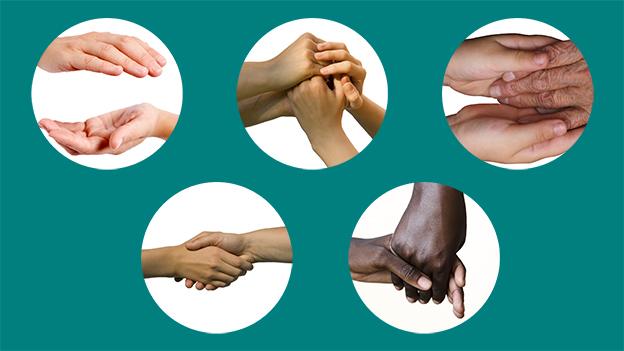Elderly failed by 'shameful' care system
- Published
- comments
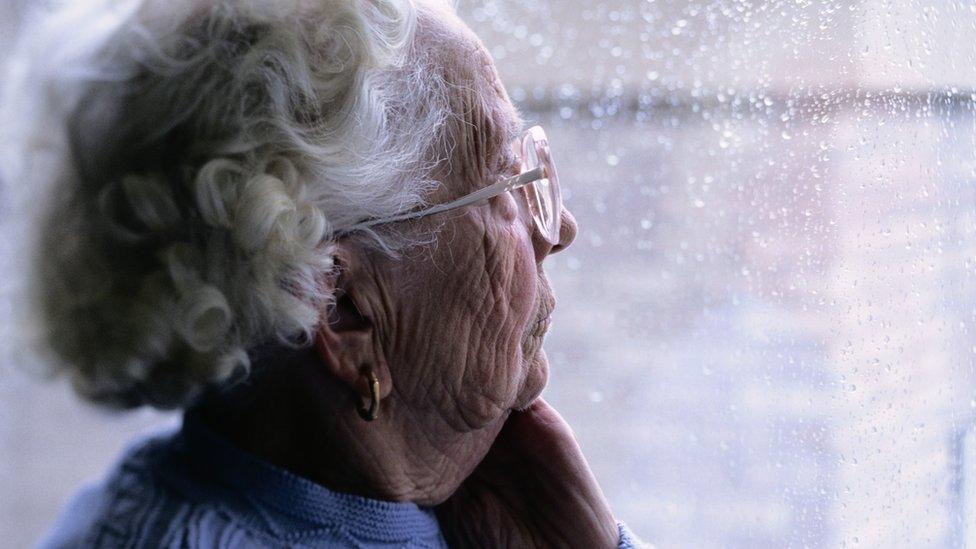
The way older people are being cared for in England is "shameful" and "scandalous", charities say.
Age UK and the Alzheimer's Society criticised both the quality of care and the way it was rationed as they published fresh evidence on the state of the care sector.
It includes figures that suggest the number of older people not getting help has risen by nearly 50% since 2010.
But ministers insisted plans were in place to support the market.
Care is funded by either councils or individuals themselves - although growing numbers are also relying on family and friends to support them.
The two charities published reports on the same day that the BBC released an analysis of how councils had handled requests for help.
The three pieces of research showed:
There are now an estimated 1.2 million over-65s going without help for care - nearly one in eight of all older people
Some 300,000 of them have difficulty with three or more tasks, including dressing, washing and going to the toilet
Councils agreed to help under half the 1.3 million people who approached them for care last year
The BBC identified 11 councils that rejected more than 75% of applications
Where home care was provided "serious problems" were identified in the way dementia patients were treated
Staff said they had not been given enough training to cope with the complex needs people had
Families reported examples of poor care, including loved ones not being given medication, being left in dirty clothes for days and going missing after homes had not been properly secured
Caroline Abrahams, of Age UK, said she was "extremely worried" about the "shameful" state of the care system.
"The sad irony is that it would be far more effective as well as infinitely more humane to give older people the care and support they need," she said.
Find out the cost of care in your area
Meanwhile, Alzheimer's Society chief executive Jeremy Hughes said: "From the scandals we have exposed, it is clear home care workers are not fairly or adequately equipped with the skills they need to support vulnerable people. There simply is not enough money invested in the social care."
The warnings comes just a month after the official inspection body, the Care Quality Commission, warned the sector was at "tipping point" - with the lack of care having an impact on hospitals through rising accident and emergency attendances as vulnerable people sought help.

The fight to get care: My mum can barely walk
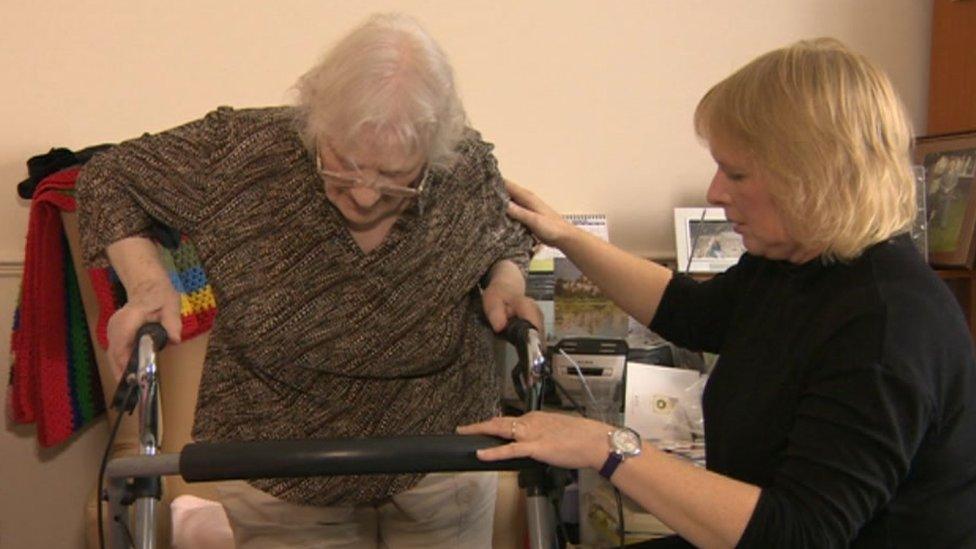
Lorna Wheatley, from North Yorkshire, has been trying to secure a nursing home place for her 82-year-old mother Celia.
"My mum can barely walk or look after herself, and the council says she only qualifies to live in sheltered housing," Lorna says.
"I'm terrified that without constant support, she could die."
"Even my mother's GP has written a letter to North Yorkshire Council to say she needs full time residential care.
"What makes me angry is that it's a postcode lottery.
"My mum has paid her taxes all her life and I've been told that if my mum lived in South Yorkshire she'd get funding to live in a nursing home, and for me that is unfair".

A Department of Health spokeswoman said steps were being taken to improve care.
A £5bn pot of money has been set aside to encourage joint work between the NHS and care sector, with an additional £1.5bn being added to that by 2019, and councils have been allowed to increase council tax by 2% a year to invest in care services.
"We are determined to make sure that older people throughout the country can get affordable and dignified care," she added.
But councils said that investment was not enough - and called for the government to have another look at funding in next week's Autumn Statement on its spending plans.
Councillor Izzi Seccombe, of the Local Government Association, said: "Unless social care is properly funded, there remains a growing risk to the quality and safety of care, and the ability of services caring for our elderly and vulnerable to meet basic needs such as ensuring people are washed and dressed or helped out of bed."
- Published15 September 2016
- Published14 September 2016

- Published14 September 2016

- Published9 December 2015
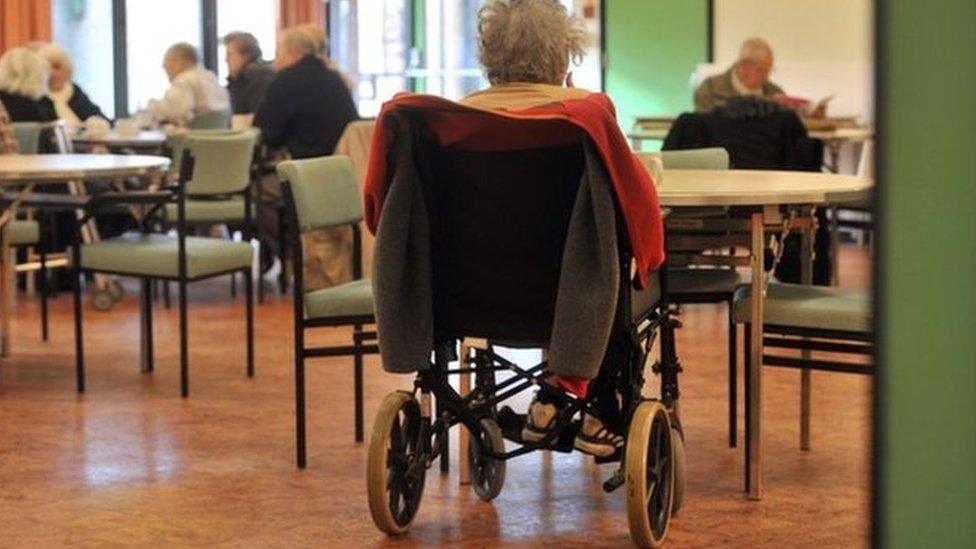
- Published9 December 2015

- Published19 November 2015
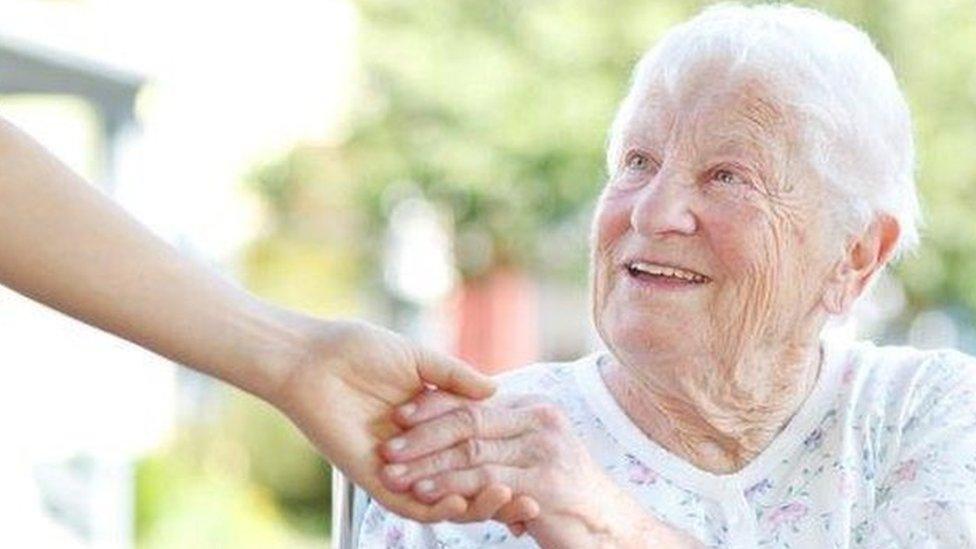
- Published7 October 2015
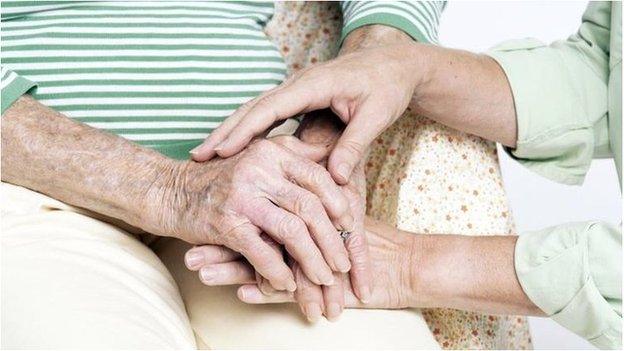
- Published17 July 2015
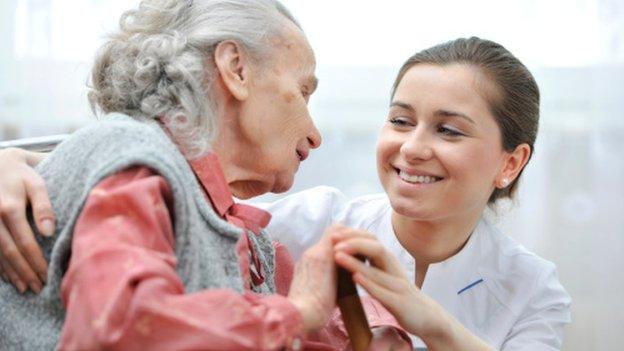
- Published28 July 2015
